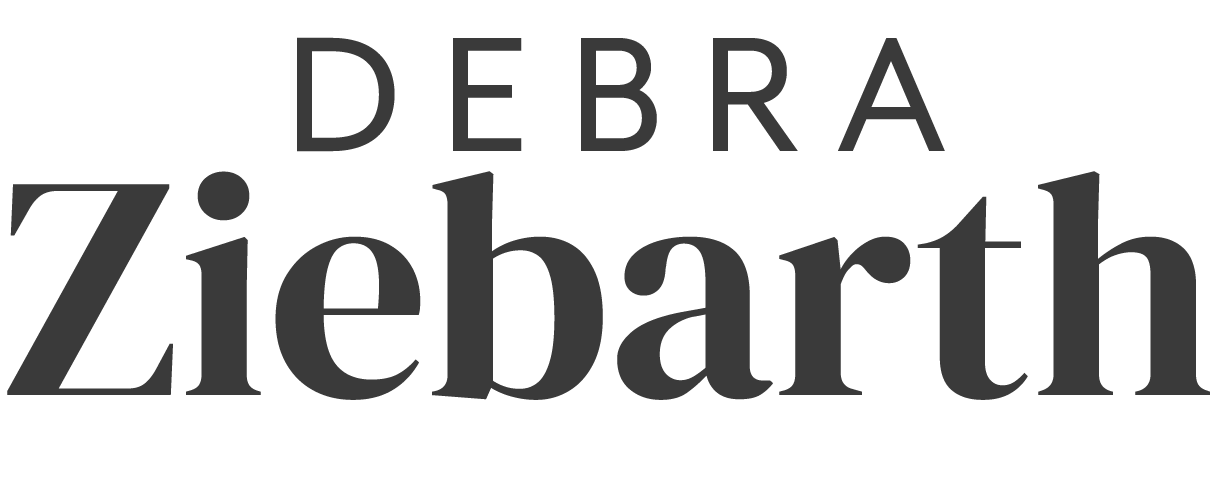When the Perfect Job Isn’t
Navigating Integrity in Today’s Job Market: In a competitive job market, job seekers face tough choices. Should you settle for a job that doesn’t fully want you or hold out for the perfect fit?

Navigating Integrity in a Shifting Market
Imagine this scenario: you’ve been applying for jobs and interviewing for months. Maybe you’ve been laid off or this is your first job. Maybe bills are starting to pile up or you have a family to support. Whatever the situation, you’ve been starting to feel the financial or mental crunch of being in the job market. Then, the miraculous happens- you get a job offer… for a less-than-perfect job.
Do you take it?
I’ve been thinking about integrity lately, especially when it comes to the all-consuming maw of the job hunt. Thousands of people are experiencing this every day.
Remote work has [...] changed the typography of the job market. Instead of competing against candidates in your local market, suddenly you’re competing against the WHOLE WORLD.
To put things in perspective, my husband and I decided it was time to move our family several states away from upstate New York. I started searching for job openings in small business operations, and wouldn’t you know it—I found one. On paper, it was perfect: operations, HR, finance, and growth. The salary was the cherry on top. I interviewed with the company, flew out to meet them, my husband and I even found our dream house nearby. The stars were aligning. Then, they asked me to interview with a consultant—a trusted advisor, apparently—but by the end of that interview, it was clear: this consultant did not like me. When the company passed on my application, it wasn’t a surprise.
But the recruiter is determined. He believes I am the perfect fit and said he’d advocate for me. I can't help but feel guilty, though, because I know I'm probably his only chance at a commission.
On one hand, this job truly does feel like a good fit. I have this exact experience, doing this exact same thing. The company culture seemed good. The area was great. The pay was excellent. I would be financially independent from my husband for the first time in almost a decade. My mental health would improve 1000% just from feeling societally useful once again.
But on the other hand, THEY DON’T WANT ME. And I’m not sure I could ever shake that feeling. This role would have me working closely with the owners, and knowing that they had to be persuaded to hire me? *shudder* That would always give me the ick. It’s already tainted how I feel about every potential future interaction with the company. What was once a ten-year opportunity now feels like something I’d last in for maybe two years, tops. That’s just not fair to anyone involved.
So, do I take the “perfect” job knowing they didn’t want me, or do I walk away, knowing I’m disappointing the recruiter and possibly denying my family the income we could really use?
The situation I’m facing has made me think a lot about integrity while on the job hunt. It’s a complicated issue, one that many people find themselves grappling with in today’s market. In my case, I have to weigh the need for a stable job and financial independence against the knowledge that I wasn’t the company’s choice. This personal dilemma is just one example of how us job seekers are increasingly confronted with hard choices that test our integrity.
Navigating a New Job Market
The job market itself has evolved, and with it, the challenges faced by those looking for work. In recent years, job seekers have been navigating a rapidly changing landscape shaped by economic uncertainty, technological advancements, and shifting expectations from employers. These factors have created new ethical dilemmas that many of us never imagined having to face.
For example, the rise of remote work has broadened opportunities, but it’s also introduced questions about honesty in skill representation, as virtual interviews and resumes become the primary ways to assess candidates. Remote work has also changed the typography of the job market. Instead of competing against candidates in your local market, suddenly you’re competing against the WHOLE WORLD. It’s not uncommon for me on my own job hunt to see job postings that have hundreds of applicants. We’re all tiny fish in an ocean of job seekers and you have to have something incredible to stand out against the crowd, be it specific long-term experience in a niche market or a degree from a ridiculously specific school or intern program— no really, I’ve seen it. Sometimes the requirements on these job postings are bonkers. But when you're searching for a job—especially a remote position—employers can demand anything they want from their shiny, “perfect candidate” wishlist. They have all the power in that relationship.
The Pressure to Settle
These changes in the job market, combined with the uncertainty many people feel when searching for work, often lead to difficult decisions. For job seekers, like myself, the pressure to accept a job—even one that might not be a perfect fit—can be overwhelming. External factors, such as financial stability, family responsibilities, and even the persuasive efforts of a recruiter, all come into play.
When the pressure mounts, it’s easy to justify moving forward with a less-than-ideal opportunity. You start to weigh the pros and cons: Will this job help my family? Will it get me out of a tough financial situation? Can I make it work, even if it doesn’t feel right?
We’re all tiny fish in an ocean of job seekers and you have to have something incredible to stand out against the crowd
These are common questions that many applicants face. The need for stability or the fear of not finding something better can make us feel like we have no choice but to proceed. But at what cost? In today’s job market, it’s not uncommon for candidates to feel trapped, pressured into roles that they know might not be a good long-term fit—all because of external factors they can’t ignore.
This whole process has called our integrity into question. I’ll be the first to admit— I’m incredibly privileged. My husband makes enough from his salary to support our family. But thousands of others don’t have this same safety net. They need money to feed their cats, their kids, their aging parents, whatever. Sometimes we don’t have the luxury of passing on a job offer, no matter how poor of a fit it is.
Integrity vs. Survival
When faced with financial pressure or personal responsibilities, it’s easy to see why many job seekers take positions that aren’t the right fit. The decision to accept a job offer often goes beyond personal preference or alignment with values. It becomes a balancing act between immediate survival and long-term fulfillment. You might know deep down that the role isn’t right for you, but sometimes you can’t afford to prioritize your ideal circumstances.
In my case, I had the advantage of weighing the pros and cons because I wasn’t in immediate financial distress. But for others, the reality is much harsher. Mounting bills, a mortgage, or supporting a family can make staying true to your values feel like a distant luxury. The question shifts from “Do I want this job?” to “Can I afford to turn this down?”
Many job seekers face this exact dilemma. The stress of compromising integrity for survival can weigh heavily on them, creating a sense of being stuck between doing what’s right for you and doing what’s necessary for your family or financial security.
The key is realizing that neither choice is wrong. Everyone’s circumstances are different, and sometimes the consequences of turning down a much-needed job are too great. For others, enduring financial strain may be worth it to find a job that truly fits their values.
In my own situation, while I have the benefit of immediate financial security, I'm still struggling with the idea of taking a job where I’m not truly wanted. But for many, the stakes are much higher. Economic instability, family needs, and recruiter persuasion can all amplify these decisions. The job market doesn’t always allow for a “perfect” choice, and for many, the decision to sacrifice either values or security feels like a lose-lose situation.
Job Market Realities and Trends
The economy plays a massive role in shaping the decisions job seekers make, especially when it comes to maintaining integrity during the job hunt. As the economic landscape continues to shift, it’s not just about finding the right fit anymore—it's about survival. Finding a job is no longer about finding the right fit—it’s more like trying to squeeze into the only pair of pants left at a store’s going-out-of-business sale.
The current economic climate—whether it’s the relentless increases in rent or the seemingly endless wave of layoffs—has put a lot of pressure on job seekers to accept roles they may not be fully aligned with. Take the recent tech industry layoffs, for example. Thousands of talented professionals found themselves back on the market overnight. When your immediate financial stability is at risk, the idea of waiting for the perfect fit fades pretty quickly. In these cases, integrity often takes a back seat to survival.
The Role of Automation and AI in Recruitment
Adding to these pressures is the rise of automation and AI in recruitment, which has transformed the job search into something of a digital obstacle course. With Applicant Tracking Systems (ATS) sorting through hundreds of resumes before they ever reach a human being, candidates often feel the need to optimize their applications to please an algorithm. I’ve been there: rewriting the same resume 12 times just to make sure it passes the AI. Unfortunately, the whole process can feel less about honesty and more about gaming the system— and that can really mess with your sense of integrity. And then there’s the wait— where, if you’re lucky, you get an automated rejection email, but most of the time, it’s radio silence.
These systems make it more difficult for job seekers to feel fairly evaluated, and often leave them wondering if their qualifications are being overshadowed by the wrong keywords. It’s hard to hold onto optimism when you’re not even sure if your application made it into the right pile.
Add to it that corporate restructuring has made the job market just that more unpredictable. Companies are constantly downsizing, merging, or outsourcing, which means job seekers have to prioritize job security over career fulfillment more than ever. In a volatile job market, stability is hard to come by, and many people feel forced to accept roles simply because they seem secure—at least for now. It's tough to stick to your long-term goals when you’re not sure if the company you’re applying to will even exist in a year. In these situations, maintaining integrity becomes a complex challenge.
Dilemmas
The reality is that the modern job market doesn’t always offer a clear path and it's hard to know if you're making the "right" decision. In some cases, there’s no perfect answer, and integrity can feel like just another layer in a decision-making process that’s already fraught with challenges.
For those of us fortunate enough to have a safety net, we might be able to take a step back and weigh our options more carefully. But for others, turning down a job, even one that doesn’t feel right, simply isn’t an option. And it’s in this constant negotiation between our values and our circumstances that many of us find ourselves struggling with difficult choices.
I'm sorry to say, I don't have an answer to this problem.
In my own situation, I’m left wondering where integrity ends and practicality begins. Am I holding on to my pride, or am I listening to my gut? Perhaps it’s a bit of both. But in the end, the job market has its own way of pushing us forward, whether we’re ready or not.
I fill my days with yet more applications, trying not to ruminate on what I possibly did wrong, but as the silence grows louder, I’m starting to realize that I might just have to file this one under “rejected.”




Comments ()